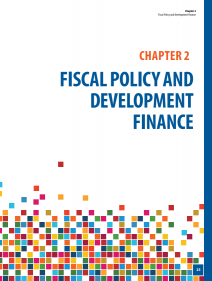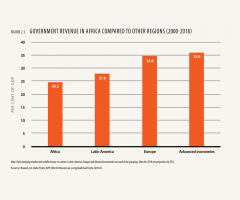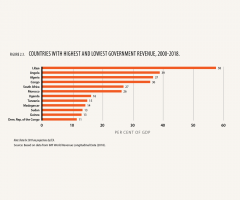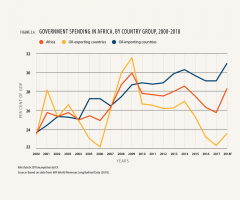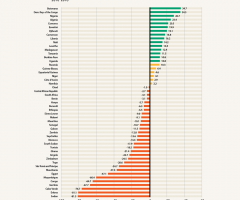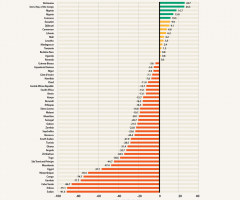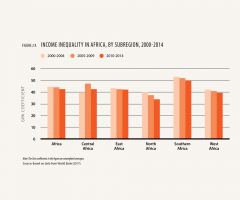D espite substantial fiscal reform, revenue ratios, fiscal balance and debt levels have deteriorated in Africa, reflecting a continuing reliance on commodity revenue and the recent steep decline in commodity prices. Although growth and employment remain primary objectives of fiscal policy, many African economies need to adopt a countercyclical fiscal policy that also focuses on macroeconomic stability. Overall, African countries could increase their government revenue by up to 5 per cent of GDP by shifting from acyclical or procyclical fiscal policy to countercyclical fiscal policy.
African tax authorities should steer clear of the global “race to the bottom” in cutting corporate tax rates to attract foreign companies. The Report’s analysis show that cutting taxes will lead to large losses in revenue in return for small and often uncertain gains in investment: to achieve a 1 per cent increase in total investment, governments could lose up to 20 per cent in tax revenue.
Fiscal policy can boost investment in Africa by promoting the African Continental Free Trade Area (AfCFTA). Trade openness has the largest impact on investment in Africa. A 1 per cent rise in Africa’s trade can boost private investment by an average of about 0.5 per cent.

